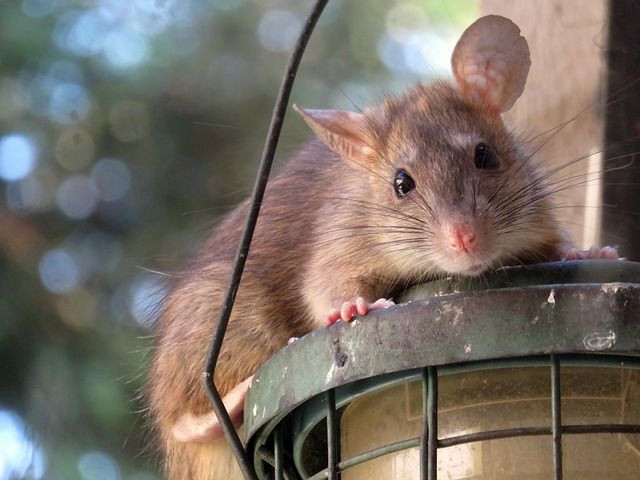Marijuana Risks Update: THC Doesn't Make Rats Stupid — Just Lazy

Let it never be said that rats aren’t just like the rest of us — at least when it comes to pot. Canadian researchers at the University of British Columbia (UBC) embarked on the most noble of scientific endeavors: Exposing 29 male rats to the main active ingredients of your typical marijuana joint, namely Tetrahydrocannabinol (THC) and cannabidiol (CBD), and then forcing them to complete a pop quiz of their cognition skills.
Overall, the results suggest THC doesn’t impair our ability to think so much as it does our ability to keep our eyes on the prize. That impairment could, the researchers speculate, help account for the link between poorer socioeconomic status and chronic cannabis use, though more direct human research would be needed to confirm their theory.
The mice were left in a small box with two levers. Either would cause a light to turn on for a short time that when pressed would release a delicious treat, but one would turn the light on for only 0.2 seconds, while the other would do so for one full second. The shorter time to press the light would be compensated by a much bigger reward if successful, however, making it the standard choice for most normal rats. But when THC-dosed rats were in the room, they consistently chose the lever that would leave the light on the longest time, but which also provided the smallest reward.
Their findings were published Tuesday in the Journal of Psychiatry and Neuroscience. “Perhaps unsurprisingly, we found that when we gave THC to these rats, they basically became cognitively lazy,” said lead author Mason Silveira, a PhD candidate at UBC’s department of psychology, in a statement. “What’s interesting, however, is that their ability to do the difficult challenge was unaffected by THC. The rats could still do the task— they just didn’t want to.”
The idea of creating stoned rats may sound funny, but Silveira and his team came across some potentially important findings. For one, they found that CBD actually didn’t do much at all to help lessen THC’s effect on the rats. It was only when rats were given a 1 to 1 ratio of CBD and THC that CBD made them slightly less likely to be lazy. On the flip side, because CBD didn’t affect the rats’ behavior, medications that largely rely on CBD rather than THC may prove to be much safer for its users. THC is the main psychoactive ingredient of marijuana, responsible for the characteristic high of the drug.
“This was surprising, as it had been suggested that high concentrations of CBD could modulate or reduce the negative effects of THC,” said senior author Dr. Catharine Winstanley, an associate professor in UBC’s department of psychology. “Unfortunately, that did not appear to be the case.”
If nothing else, they hope their current findings highlight that marijuana “may not be the medical panacea some suggest it to be,” even as cannabinoid-derived drugs continue to hold great promise in treating certain kinds of pain and other symptoms caused by chemotherapy or neurological disorders like multiple sclerosis.
“Understanding how phytocannabinoids [which include both THC and CBD] affect key cognitive abilities remains an important research priority, given the push for cannabis law reform that would see a rise in its medical and recreational use,” they concluded.
Source: Silveira M, Adams W, Morena M, et al. Δ9 -Tetrahydrocannabinol decreases willingness to exert cognitive effort in male rats. Journal of Psychiatry and Neuroscience . 2016.
Read More:
What Does Marijuana Do To Your Brain And Body? THC Interacts With Memory, Time Perception. Read here.
Health Benefits Of Medical Marijuana: 3 Major Ways Cannabis Helps Sick People Live Normal Lives. Read here.
Published by Medicaldaily.com



























